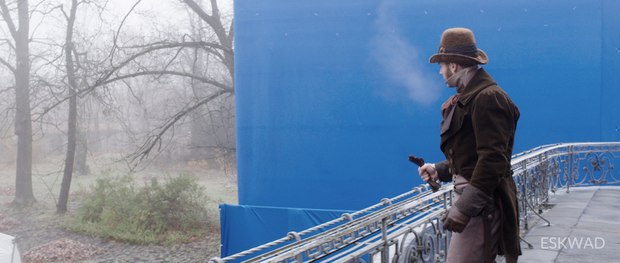Render farm manager's ability to define custom job types lets visual effects studio manage complex multi-application workflows for blockbuster movie projects such as ‘X-Men: Days of Future Past,’ ‘Race’ and ‘The Colony.’
Los Angeles, CA -- For Vision Globale, creating effects for movies like X-Men: Days of Future Past could be as complex as their plots. In its work on projects like Bryan Singer's time-travelling, shapeshifting, Academy Award-nominated blockbuster, the Montreal studio uses no fewer than four separate 3D packages, plus numerous other renderers, compositing applications, simulation tools and plugins. Fortunately, Qube!, PipelineFX's powerful render farm manager, is there to bring order to the chaos.
Part of the TVA Group, Vision Globale is one of Canada's largest providers of film production services, with businesses ranging from studio hire to stereoscopic conversion. Its visual effects division alone employs over 100 people, and has worked on blockbusters including Resident Evil: Retribution, The Colony, La Belle et la Bête -- and, of course, the X-Men franchise.
Although much of its VFX work is created using Maya and the Arnold renderer, the studio makes use of a wide range of other software, including 3D applications Houdini, Softimage and 3ds Max, compositing package Nuke, gaseous fluid dynamics engine FumeFX, and simulation tool Golaem Crowd, all running on a mixture of operating systems. To complicate matters still further, Vision Globale's hundreds of render nodes are also used for transcoding work, creating a potentially production-breaking tangle of tools and job types.
To manage the complexity, the studio relies on Qube! to streamline the process of installing and maintaining software. “We can use simple commands to install applications on every node on the farm, or update with newly released code,” says Hans Payer, Vision Globale's Pipeline and 3D Animation Developer. “In a few minutes, we can set up and maintain our entire render farm.”
For Payer, another crucial benefit of Qube! is the Python API, which enables the studio to define its own custom job types. “The ability to write job types allows us to tailor our implementation to our specific needs,” he says. “Since [those] needs change constantly, we constantly refine, alter and optimize each job type's code. We never feel limited, since we have 100% control over calculations.”
This power to customize job types on the fly also makes it easy to integrate new software into the pipeline. When Vision Globale adopted Golaem Crowd for Race, 24 director Stephen Hopkins' upcoming biopic of Jesse Owens, it chose to integrate it into its existing Maya job type rather than creating a new one. “It allows us to centralize all the logic for Maya processes into one location,” says Payer. “Sharing common tasks between different types of processes, such as rendering, caching and simulation, simplifies the implementation.”
Another recent addition to the pipeline is Houdini, which the studio used on Fallen, a new romantic fantasy by Oscar-nominated director Scott Hicks. With it, the studio's technical directors can create complex effects trees, running to many hundreds of nodes. “We had to find ways to distribute [all the associated] tasks, like processing caches, simulations, renders, composites and file conversions with complex dependencies,” says Payer. “Centralizing [everything] into one Qube! job type simplifies the code and facilitates its maintenance.”
Qube! even allows technical directors to automate their work, as Payer explains. “I gave one of our Houdini TDs a quick course on how to submit jobs to Qube! programmatically. With that information, he managed to code his entire workflow. He would send a Maya process to Qube! that would then dynamically build Houdini scenes to simulate and render his final work. Minimizing manual tasks [meant he was able] to avoid errors, streamline his flow, and deliver sooner.”
This power to condense complex, multi-application workflows into simple render farm operations is crucial to Vision Globale's ability to deliver visual effects shots to the high standards of quality demanded by blockbuster movies.
“We always aim to push any long or tedious process to the farm,” says Payer. “Thanks to Qube!, our artists are able to submit hundreds of tasks quickly and effortlessly, enabling them to concentrate on creating effects, not managing computations.”
Source: PipelineFX
















